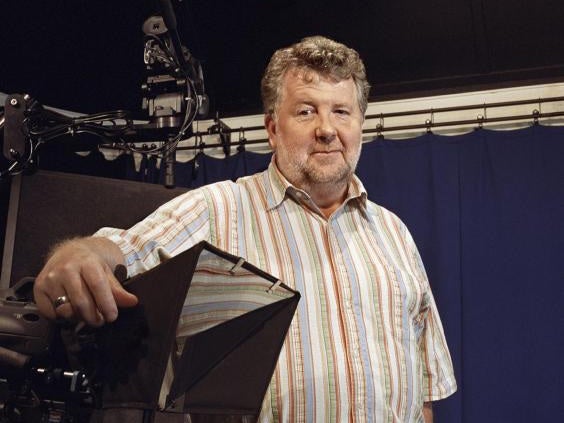Facing death and talking about cancer with your kids is very different to how you'd expect
When Steve Hewlett opened up to Eddie Mair on Radio 4 his interviews were a stark but important insight into facing up to cancer

Steve Hewlett, veteran BBC journalist, who sadly died following oesophageal cancer earlier this week, once said that people don’t talk enough about cancer. “There’s not enough informal dialogue between patients, the public, experts, and clinicians,” he said.
I had the privilege of joining Steve on a number of live Radio 4 interviews with Eddie Mair as he discussed his cancer diagnosis and treatment. On hearing that he had advanced cancer, Steve decided to use his profile as a broadcast journalist, to do exactly that – open up a dialogue with the nation about cancer.
As a Macmillan Cancer Nurse Specialist, I know the value that talking can have, for both patients, their family and friends. Steve’s very human expression of his experience reminded us all of the importance of talking, even on those subjects that are really tough. He taught us the value of sharing our hopes and fears for the benefit of others.
Indeed, by sharing his story, Steve has no doubt helped raise awareness of cancer amongst men. Macmillan research shows that one in ten men waited more than a year to see a doctor after first noticing a health problem. We also know anecdotally that when men are diagnosed with cancer, they may be less willing to ask for help and support, which can leave them feeling isolated, making it harder to cope. In his matter-of-fact way, Steve told us about his symptoms, such as the ‘fizzy pop’ sensation he had, or the time he couldn’t get through his meal at Wagamama. His voice transcended the airwaves and by speaking up, he told men across the country that it’s fine to talk.
Steve even shared his family with us. He brought his sons on to the show to share their feelings as they went through the experience together. The nurses on Macmillan’s Support Line are frequently asked, “How on earth do I tell my children I’ve got cancer?” Steve’s response to this is something that will stay with me. In stark contrast to his usual wry wit and humour, he faltered. “The really hard thing I found, was telling the people that are close to you, my children especially. You know what they mean to you, but you don’t know what you mean to them.” This is something that countless people feel and I’m sure Steve’s honest and open approach will have touched many people.
By talking about his personal experience navigating the NHS, he highlighted that that even with the dogged determination of a journalist, processes such as getting a referral, can be a challenge and to be as prepared as possible. He made the point that if a journalist struggles to get answers, then how would his elderly mother fare? Would she feel confident asking the doctor if she didn’t understand what he or she was saying; would she think to take a friend with her to appointment for a second pair of ears? He shone a light on the fact that survival rates aren’t the only important measure – the quality of someone’s experience is just as important.
But most of all, in talking about his cancer Steve showed listeners that talking about death is an essential part of life. We know the taboo is a big barrier to essential conversations about death – no one wants to bring it up. Not patients, families, sometimes not even healthcare professionals. At Macmillan, we want everyone to have a choice about how they are cared for at the end of their life. In order to do this, it’s important to have conversations about planning ahead early, before the final weeks or days of your life.
Steve created an informal conversation about cancer with the nation and the nation responded with people reaching out to share their own stories or offer support.
Not everyone feels comfortable talking and that’s fine, but don’t underestimate the impact that sharing can have. Steve’s story helped reach people all over the country who’ve been affected by cancer. I hope it inspires more people to talk.
John Newlands is Senior Cancer Information Nurse Specialist at Macmillan Cancer Support
Join our commenting forum
Join thought-provoking conversations, follow other Independent readers and see their replies
Comments
Bookmark popover
Removed from bookmarks